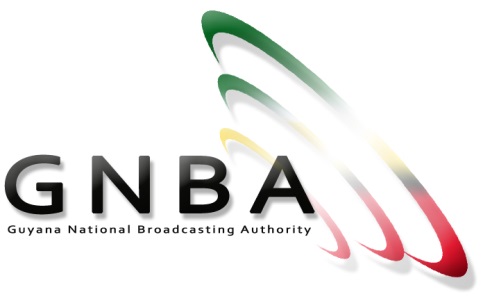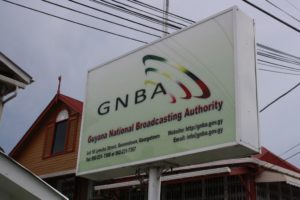Guidelines for Broadcasters: News and Current Affairs Programmes
Source: Guyana National Broadcasting Authority
News and Current Affairs Programmes make up a valuable part of the programming offered by licensed Broadcasters in Guyana. The primary importance of these programmes is to inform and educate the public about a wide range of ever-changing events and issues occurring locally, regionally and internationally.
The conduct of these news and current affairs programmes is guided by certain journalistic codes and principles, but more importantly, they are governed by the Broadcasting Act 2011, Broadcasting Amendment Bill 2017 and the Guidelines for Broadcasters.
Broadcasters therefore have an obligation to ensure that the material they broadcast, whether it is made in-house, commissioned through an independent production company, or acquired, is in keeping with the Broadcasting Laws of Guyana. Furthermore, Broadcasters should be aware of all content before it is broadcast and ensure that unsuitable material is appropriately edited to avoid any breaches.
Section 19 of the Broadcasting Guidelines outlines the following provisos for news and current affairs programmes;
19. News and Current Affairs Programmes
19.1. Diversity, Impartiality, Accuracy and Truthfulness
News and current affairs should:
a) promote diversity, truthfulness, accuracy and impartiality;
b) should clearly identify commentary, opinion and analysis as such;
c) ensure fairness and balance of views in the discussion of controversial public affairs
19.2. Due impartiality and Truthfulness
In matters of political or industrial controversy and matters relating to current public policy and, in order to preserve due impartiality, the following must obtain:
a) A wide range of views must be presented and due weight given to opposing sides in each programme.
b) Personal views/opinions must be represented as such and not as facts.
c) Personal interests should be declared and subject to a disclaimer.
d) The broadcast of editorially linked programmes dealing with the same subject matter (as part of a series) should be made clear to the audience on air.
19.3. Accuracy
a) Mistakes must be acknowledged and retracted in a timely manner; such acknowledgements and retractions should be given similar prominence as the mistakes;
b) Politicians presenting, interviewing or reporting news programmes must state political affiliation;
c) Material for presentation must be gathered using firsthand sources wherever possible;
d) Information should be checked and cross-checked before being presented;
e) The authenticity of documentary evidence and digital material must be validated before presentation or broadcast;
f) Claims and allegations made by contributors must be corroborated, wherever possible at the time they are made.
g) When anonymity of sources is requested, care should be taken not to reveal any information that could lead to the identification of such person(s).
These Broadcasting Guidelines were developed to provide licensed Broadcasters with further direction and assistance in the interpretation and application of the Broadcasting Act 2011, specifically in the areas concerning appropriate broadcast content.
Broadcasters are therefore encouraged to familiarise themselves with the Guidelines, which can be accessed and downloaded from the GNBA website, www.gnba.gov.gy.



